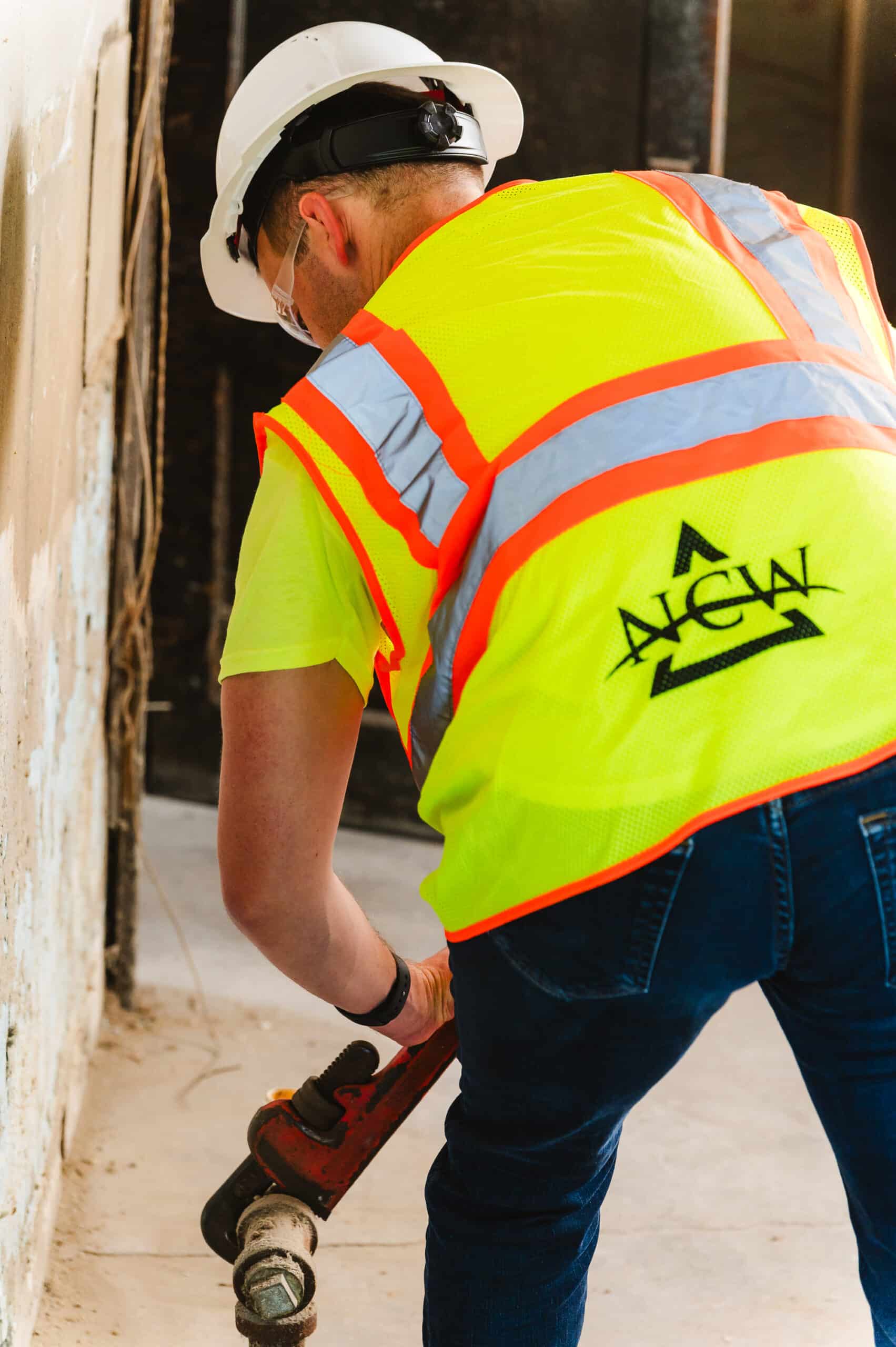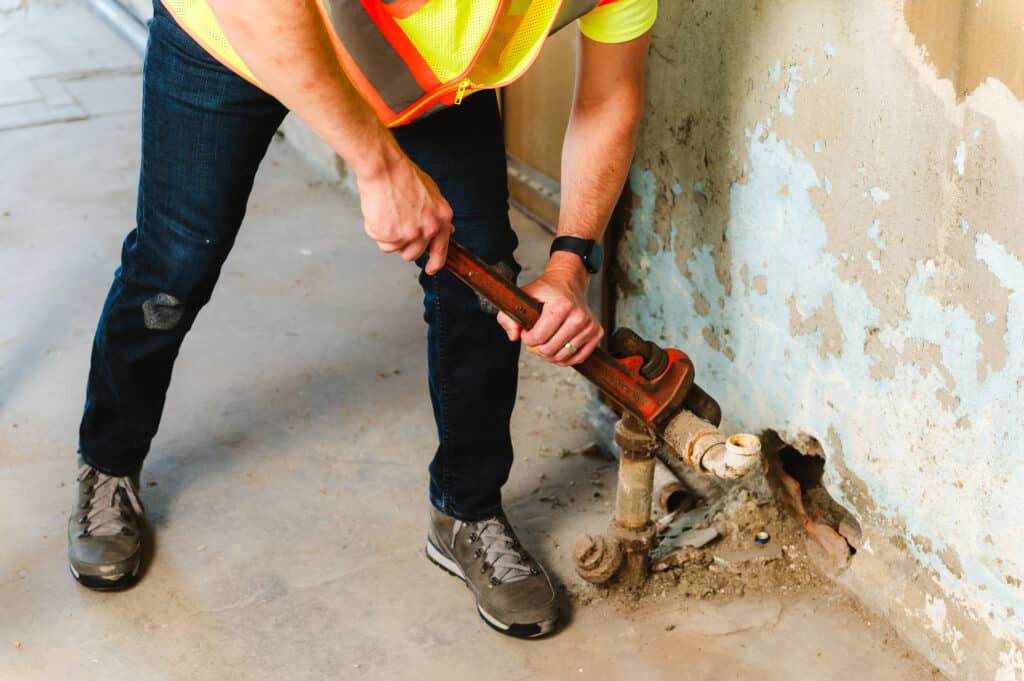
How to Become a Plumber
Becoming a plumber begins with commitment and diligence to succeed — you must also seek comprehensive knowledge in the field to excel. It’s an ongoing learning process, with the top plumbers having years of experience under their belts. Construction projects almost always need plumbing work making plumbers one of the most in demand construction jobs out there.
There are many reasons why interested individuals become plumbers. Among them is a passion for the trades and construction, as is pay.
Starting a career in plumbing can be lucrative due to the high demand for professional, skilled plumbers. This lucrative profession offers financial stability, professional growth, and job satisfaction opportunities.
So, if you’re wondering how to become a plumber, this guide is for you.
The Need for Plumbers Will Continue to Grow
The potential growth in the plumbing industry cannot be ignored. The plumbing job outlook is positive, and the industry expects steady growth.
The ever-present demand for plumbing services in construction jobs creates a constant need for trusted plumbing professionals, making it a career worth investing in. A recent report shows that by 2027, the United States will likely be short around 550,000 plumbers. Job availability is one selling feature, as is the potential pay. While the average annual wage is over $65,000, the top plumbers are pulling in over $101,000 yearly.
For those considering how to become a plumber engineer, the journey involves obtaining normal plumber training alongside specialized coursework in engineering principles.
Training, Apprenticeship, and License Acquisitions
The initial step in becoming a plumber is comprehensive training.
Plumbing vocational training provides the fundamental knowledge accrued through theoretical and practical experiences. Vocational training institutions offer essential courses to equip hopefuls with the necessary skills to navigate this profound profession. You can benefit greatly from these training programs.
However, becoming a skilled plumber goes beyond attaining theoretical knowledge — it requires real-world experience. For those wondering how to become a plumber without experience, apprenticeships are the gateway to gaining firsthand training.
An apprenticeship is a unique opportunity to gain practical knowledge and hands-on experience. As an aspiring plumber, you can learn the ropes under the supervision of experienced plumbers, gaining invaluable knowledge and experience. An apprenticeship is a precursor to moving up the ranks to a journeyman. This process is a great way to see if the plumbing field is the right fit for you, and this step often seals the deal for those passionate about this potential career.
Plumbing is regulated by legislative bodies, thus necessitating license acquisition. Although plumbing license requirements differ from state to state, they are universally recognized as an essential step in becoming a professional in the trade. To qualify for licensing, a plumber must have completed a minimum period of an apprenticeship and passed a state or national exam.
In summary, becoming a plumber necessitates vocational training, an apprenticeship, passing a licensing exam, and ongoing professional development. Each step is crucial in shaping an aspirant into a qualified, competent professional who can handle the intricacies of the plumbing industry efficiently. The journey may be demanding, but the rewards are plentiful.
Discover the Necessary Skills
Becoming a successful plumber involves constant learning. It begins with discovering the necessary skills, which go beyond the basic plumbing skills.
As discussed, a plumbing career path usually starts with a plumbing apprenticeship. In this apprenticeship phase, you’ll delve into various plumbing systems — from residential to commercial and industrial. You’ll acquire knowledge about water and sewage systems, understand how to optimize functionality and run necessary tests for efficient performance. The apprenticeship also includes learning about local plumbing codes and regulations.
It’s essential to highlight that possessing technical expertise is one of many prerequisites in this profession. A plumber should also have:
- Excellent problem-solving capabilities, as varying job sites will require you to adapt — especially when working on renovations.
- Physical stamina is essential, as you must be on your feet for hours, carry heavy materials and equipment, etc.
- Customer service skills. It’s necessary to be personable and communicative when interacting with customers. Their trust and satisfaction play a crucial role in the successful growth of local plumber services.
Breaking into the plumbing job market involves more than being a good apprentice. It includes transitioning from an apprentice to a journeyman, which usually entails taking an exam after your apprenticeship. The exams differ across states. Some might require specific years of experience, while others may demand further formal education.
The plumbing job market is continuously evolving. As modern technology and environmentally friendly practices become more prevalent, plumbers must keep up with these advancements. Knowing the basics is no longer enough.
An aspiring plumber must be ready to evolve with the industry, constantly learning new skills and techniques. Discovering and acquiring the necessary skills is ultimately an ongoing process for individuals pursuing a plumbing career path.
How to Become a Plumber: Take These Steps

If you’re ready to start this fulfilling career, consider the following steps to become a plumber.
Step One: Seek Education
The first crucial step to becoming a plumber is meeting the basic educational prerequisites.
A high school diploma or equivalent is typically required, focusing on math, science, and computer courses. Tertiary education isn’t necessary, but vocational training can give an edge. Various technical schools offer courses on pipe system design, safety, tool usage, blueprint reading, and even local plumbing codes.
Step Two: Become an Apprentice — Then a Journeyman
After satisfying the educational requirements, you take on the crucial role of an apprentice.
Understanding how to become a plumber apprentice is instrumental in setting the foundation for your future career. An apprenticeship allows you to combine classroom instruction with paid on-the-job training. Trade unions and contractor organizations manage most apprenticeships and require at least 144 hours of classroom instruction and 2000 hours of practical training annually.
Upon completing the apprenticeship, the next evolutionary stage is becoming a journeyman. To become a plumber journeyman, you must meet specific requirements, such as working a specific number of hours as an apprentice and passing an exam. Each state sets its own criteria, so you must understand your local requirements.
Exploring different plumbing career opportunities can be enlightening, as this industry offers more than just residential or commercial plumbing positions. Some plumbers specialize in natural gas lines, water sprinklers, or even climate control systems, to name a few. As more buildings are constructed, retrofitted, or maintained, the demand for these specialty plumbers is expected to rise.
Step Three: Stay Ahead of Industry Trends
Finally, to keep ahead of plumbing industry trends, you should gain qualifications to work with sustainable, resource-efficient plumbing systems. With increasing pressure to conserve water and energy, green plumbing is becoming more appreciated.
As a plumber, you can elevate your career by becoming a trusted professional within this ever-evolving industry. Understand the latest plumbing technology, the appropriate use of resources, and sustainable practices, and you could find yourself in high demand.
Next steps
Ready to discover your next opportunity within this exciting field? Don’t get to find a job — find THE job.
Find work in the plumbing industry today!
Connect with a Recruiter – Submit your Resume Here
Click Here to Meet the NCW Team
